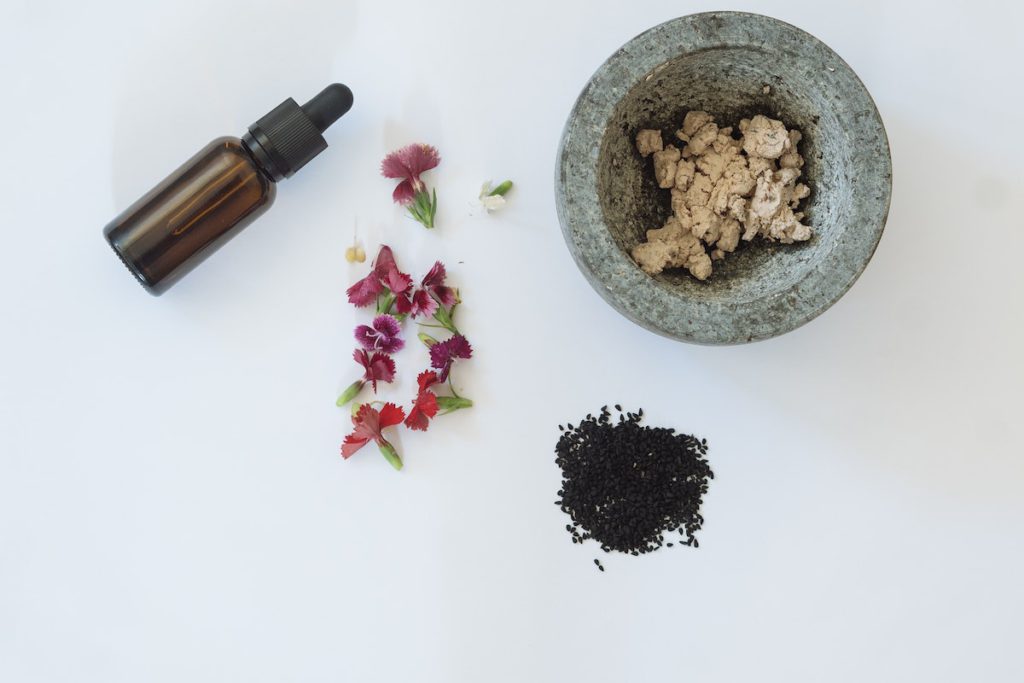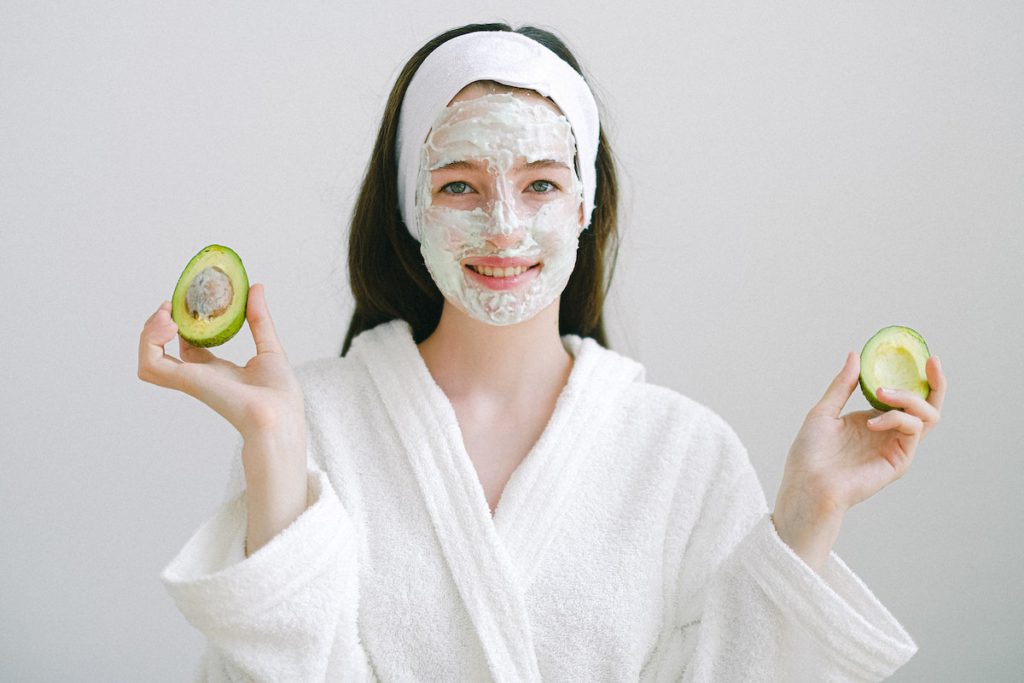Essential oils are used in these DIY skincare recipes because they help fine lines, smooth skin tones, enhance clarity, lighten the skin, impart a youthful look, and help combat the occasional spot. In addition, essential oils have been used as popular home remedies by herbalists, aromatherapists, and practitioners of traditional medicine for soothing and assisting in restoring skin stung by scratches, cuts, and other small injuries. For minor cases, the natural properties of essential oils are frequently used to aid in cleaning the skin, reduce pain, and promote skin regeneration, helping prevent or alleviate potential scarring.
Dry skin may benefit from a boost in moisturizing power from most oils, but some work better than others at alleviating a dehydrated complexion for good. Essential oils with balancing actions are best suited to this skin type, as they help to keep the skin’s natural balance and moisture levels. Feel free to experiment with different oils and methods until you find the one that works best for you and your skin type. Now that you know what essential oils are best for your skin type and concerns, always dilute those more vital oils with your face moisturizer or lighter carrier oils, such as jojoba or avocado.

You must find suitable oils for your skin type and concerns to maximize benefits. Knowing what oils are best for the skin and what is plain wrong is essential. I encourage anyone to properly research brands and products that claim to utilize crucial oils because when they are pure, fresh, undisturbed, and formulated by professionals, they can be incredibly effective at combating so many skin issues, as well as slowing down the ageing and decrement of skin.
Properly, professionally formulated — only 25% if you have sensitive skin, up to 1.5% for oily skin, and avoiding oils that are prone to irritating your skin. If you are prone to breakouts and blackheads, keeping the skin free of bacteria and excess oils should be your goal. You do not want to apply any unclean oils on your face because it may cause the opposite of what you are looking for. For example, grapefruit Oil — has astringent and tone-setting effects, which may dry out the skin.
Lemon oil: This potent citrus oil can have a clarifying effect and is packed with nutrients from antioxidants. However, note that lemon oil may be phototoxic, meaning that you might get reactions or pigmentation if exposed to direct sunlight. This makes lemon essential oil a favourite to add to DIY body rubs since it also helps restore your skin’s natural balance and reduces excessive sebum, which causes breakouts. As a natural antioxidant, Geranium essential oil enhances your skin’s natural beauty, helping to keep your skin looking and feeling well while preventing pimples.
Myrrh essential oil has powerful antioxidant properties (source), which help to improve tone, firmness, and skin elasticity, helping reduce the appearance of fine lines and wrinkles. Thanks to its antioxidant and anti-inflammatory properties, blue tansy is one of the best essential oils for acne-prone skin, as it helps clear blocked pores and reduces redness. Neroli Essential Oil – Not only is this oil super-gentle on the skin, but it has well-known antifungal and antibacterial properties, which make it helpful for oily skin clarity and preventing breakouts. In addition, patchouli oil is also packed with antiseptic, antibacterial, and antifungal properties, making it perfect for anyone also dealing with eczema, psoriasis, and acne.
For promotion, cypress essential oil is the perfect oil to add to a DIY face serum since just a few drops will enhance the skin’s natural shine without feeling oily and without congesting pores. Also, if you look a bit depleted, the lemon essential oil has hydrating solid benefits, which help nourish naturally while also providing energy and mood-boosting. Naturally, the collagen and elastin in your skin will erode over time, but rosemary essential oil may keep your fine lines at bay.
For oily skin, sage, rosemary, frankincense, and geranium are amazing ingredients that can help to balance the skin’s oil production. Some are excellent at detoxifying, others are protective against antioxidants, and others are good at balancing oil production and hydrating skin. Just as you might use them for tackling various hair issues, such as flaky scalp or excessive oil production, adding a few drops of essential oils into your skincare routine can also provide a wide range of benefits. Some of the best oils try to include tea tree, lavender, and rosemary.
Natural does not always equal better, and although some oils can smell amazing, a strong scent may be a warning sign your skin will not love it. Similar to the fragrances we splash around daily, the impact can fill the makeup of the oils we use with ingredients that make our skin worse. Sandalwood EO minimizes big pores and calms oily spots, all while rejuvenating your skin.
According to dermatologist Joshua Zeichner, ingredients such as rose geranium work to lower acne-causing bacteria in your skin, helping calm inflammation and clarify active breakouts. Geranium essential oil — helps regulate the oil in your skin and has anti-inflammatory properties that may minimize potential problems such as pimples or sensitivities. Clary Sage Essential Oil – helps internally and externally with regulation. It is believed to naturally balance issues related to hormone imbalances in women that may cause skin disorders. Tea Tree Oil – is a potent antiseptic known to help prevent bacterial infections and accumulation.
He added that the fatty acids in these plant oils might help build healthy cell membranes, encourage healing, regulate water loss, and promote circulation. Learn what oils are best used in your skincare routine, then incorporate these into your luxurious moisturizers to compliment your complexion.


